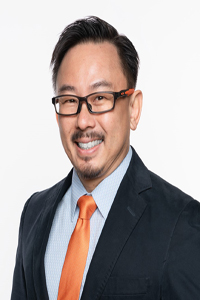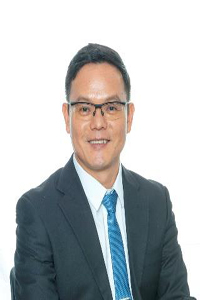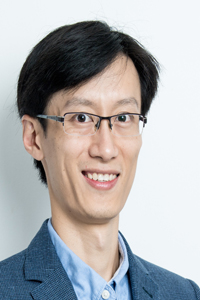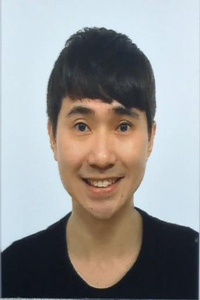PROGRAMME OBJECTIVES
Microbiome refers to the community of all microbiota including bacteria, viruses, fungi and protozoa. Over the past years, emerging evidence have demonstrated the impact of microbiota on human health and many other ecological systems. With improved technologies, we are able to identify these microbiotas and study their association with disease pathogenesis.
Through this program, we will introduce the roles of various microbiota in disease development with special emphasize on host-microbiota interactions. In addition, we will discuss and learn about how the latest technologies, particularly Next Generation Sequencing (NGS) has become the mainstream in microbiome research and the applications if NGS in various fields of medical sciences.
Who Should Attend
University students major in Microbiology, Cell Biology, Genetics, and Statistics, and are interested to understand and explore the relationship between complex microbiota-host interaction and human health and diseases through suitable NGS workflow and analysis tools.
Pre-Requisites
Participants should have basic knowledge on Microbiology, Cell Biology, Genetics, and Statistics.
Participants should be able to read, write and communicate fluently in English, and understand basic terminologies used in the class.
Programme Schedule
For individuals interested in NUS SCALE Youth programmes, please
click here to enquire.
For schools/companies interested in customised and/or group bookings, please click here.
Mode of Delivery
On-campus Programme: 15 hours of seminars, workshops, and a final project presentation.
Mode of Assessment
Students will be assessed via a variety of assignments and assessments:
COURSE INSTRUCTORS
Below are the faculty members who have developed the course, and taught the programme in the past (names are arranged in alphabetical order):
 |
Dr Kevin SW Tan, Associate Professor
Department of Microbiology & Immunology
Yong Loo Lin School of Medicine
National University of Singapore
Kevin SW TAN is Associate Professor at and Head of the Department of Microbiology and Immunology, National University of Singapore. He is also Vice-Dean, Graduate Studies, at the Yong Loo Lin School of Medicine and Head, Innovation in Graduate Studies, at the National University Health System. His curiosity for parasites originated from his graduate student days at NUS and blossomed during his postdoctoral stint at The Rockefeller University, New York City. He is relieved to be awarded tenure in 2011, and can now spend more time on social issues, such as public science education. Kevin’s research focuses on understanding how parasites commit suicide and exploiting such knowledge to trigger death mechanisms as an anti-parasite strategy. He is also interested in the problem of drug resistance and his team has recently come up with new ways to find drugs that overcome resistance. More recently, his team has embarked on projects focusing on the role of single cell eukaryotes (SCEs) in the host microbiome. He hopes that the research from his team would accelerate the finding of new cures for parasitic diseases.
|
 |
Dr Yongliang Zhang, Associate Professor
Department of Microbiology & Immunology
Yong Loo Lin School of Medicine
National University of Singapore
Dr Yongliang ZHANG obtained his PhD in Microbiology in 2002 from the National University of Singapore (NUS), Singapore. He performed his postdoctoral research in the Department of Immunology, University of Washington, USA, and the Department of Immunology, the University of Texas M. D. Anderson Cancer Center, USA. He was an Instructor in the Department of Immunology, M. D. Anderson Cancer Center before he joined the Department of Microbiology and the LSI Immunology Programme, NUS, as an Assistant Professor in 2009. He was promoted to Associate Professor with Tenure in 2017. Research in his laboratory focuses on immune response to microbial pathogens, microbiome in health and diseases, and inflammation & cancer.
|
 |
Dr Ch’ng Jun Hong, Lecturer
Department of Microbiology & Immunology
Yong Loo Lin School of Medicine
National University of Singapore
Dr Junhong CH’NG completed his PhD in Microbiology in 2012 from the National University of Singapore (NUS), Singapore. He went to Karolinska Institute for his postdoctoral training between 2012 and 2016 before returning to NUS where he is currently a Lecturer. His laboratory is interested in microbial interactions in biofilms and his teaching portfolio includes general microbiology, bacteriology and parasitology.
|
 |
Dr Chin Wen Png, Senior Research Fellow
Department of Microbiology & Immunology
Yong Loo Lin School of Medicine
National University of Singapore
Dr Chin Wen Png obtained his PhD in Medical Sciences in 2009 from the University of Queensland (Australia). He was a Lecturer and Module Chair for the Immunology module in Republic Polytechnic (Singapore) before continuing his research in NUS where he is currently a Senior Research Fellow. His research interests include understating the functions of key signaling molecules in the pathogenesis of colorectal cancer and the role of microbiome in gastrointestinal diseases.
|
CERTIFICATE OF COMPLETION
Successful participants who fulfill all program requirements, including meeting the minimum attendance and passing the assessment, will be awarded an e-Certificate of Completion and Assessment Report issued by NUS SCALE.
Certificate of Completion
A sample of the Certificate of Completion
Assessment Report
A sample of the Assessment Report.
Commendation Letter
A sample of the Commendation Letter.
SPEAK TO US
For enquiries, contact us through the following forms:
-
For individuals interested in NUS SCALE Youth programmes, please
click here to enquire.
-
For schools/companies interested in customised and/or group bookings, please
click here.
|